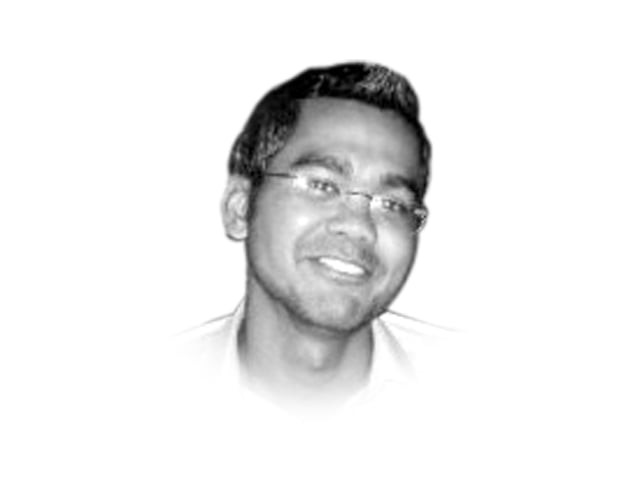Protesting against apologists
Civil society no longer considers apologists as free from blame. In fact, it puts them in same boat as that of Taliban

Protesting against apologists
Firstly, these protests have highlighted a disturbing reality, which has been largely ignored by the influential in particular and the public in general. At the time of independence, although somewhat tenuous, the narratives of the state and that of religion, although running parallel, were weaved independently of each other. Over time, and especially in light of the Objectives Resolution, the narratives started over-lapping, and then eventually became one and the same. This was the result of a variety of factors, including the state’s decision to cloak the national narrative in religious clothing so as to preserve a false sense of unity independent of ethnic divisions. Relying increasingly on religion to justify its existence, the clergy gained in stature and influence, whereas the bureaucracy and the political players weakened in authority.
The protests outside Lal Masjid, although limited in nature, represent a realisation in at least a segment of society that Pakistan needs to reclaim the space lost to the clergy. Participants appear to want to “reclaim their mosques”, or have their opinions represented in the narrative of not only the country, but their religion as well. It recognises that as a collective narrative of state and religion has been intentionally manufactured over the years, any actual change in state policy would require civil society to participate in the development of the singular narrative of religion and state. This, although in its infancy, is an important development.
Secondly, the protests are directly taking on Taliban apologists as opposed to simply frothing at the mouth against the actions of the terrorists. Undoubtedly, the state and its people have traditionally maintained a soft corner towards the Taliban. In part, this has been made possible due to the existence of a counter-narrative, which has been eloquently advocated by individuals who may not be a direct threat to any citizen or institution, but are supportive of the extremists’ fringe narrative.
The focus of the protests on the apologists evidences an important shift in the way civil society is viewing the problem. It no longer considers apologists as free from blame. In fact, it puts them in the same boat as that of the Taliban. Their shocking opinions are no longer considered as simply misguided, nor are they willing to tolerate such opinions in the name of fundamental rights. Civil society, rightly or wrongly, recognises the importance of having its own robust narrative and limiting the counter-narrative.
The role of the media here becomes increasingly important. That is exactly what the protests have tried to highlight: that balanced electronic media coverage is missing and needs to be ensured. The initial coverage of the said protests indicated a worrying trend in the electronic media, which appeared ever ready to air the narrative of the likes of Maulana Abdul Aziz, but was seen to be in a state of lethargy and paralysis when it came to the counter-narrative offered by civil society. Although the said narrative did start finding mention in subsequent days, the ability of the Maulana to easily find himself on television shows, whilst Mr Nasir had to resort to Facebook and Twitter to get his message across to the public, showed a distortion in the manner in which the media was covering the events. Though blame can be somewhat attributed to the importance of television ratings, this in no way takes away from the media’s responsibility to be balanced and mindful of its own obligations. All in all, the fact that people have started to realise that the battle for the narrative of Pakistan and its religion is as important as the ongoing battles in Fata, and that society at large cannot win this war without offering a cohesive narrative that it is able defend, is an accomplishment in and of itself. It shows a degree of maturity in our classes and a better understanding of the crisis at hand. It represents a ray of hope in Pakistan, and although this may be a bit premature to say perhaps, it also represents the will of the people to finally change the national discourse on terrorism.
Published in The Express Tribune, December 23rd, 2014.
Like Opinion & Editorial on Facebook, follow @ETOpEd on Twitter to receive all updates on all our daily pieces.
















COMMENTS
Comments are moderated and generally will be posted if they are on-topic and not abusive.
For more information, please see our Comments FAQ